- Home
- Parnell Hall
Presumed Puzzled Page 13
Presumed Puzzled Read online
Page 13
“The prosecution expects to show that the defendant, Cora Felton, had been having an affair with Roger Martindale. For the past month they had been having afternoon trysts at a midtown Manhattan hotel. We expect to show that Paula Martindale had become suspicious of her husband, and, in a scenario straight out of the movies, drove to Manhattan, staked out his office building, and waited in the shadows for him to come out. Sure enough, in the early afternoon Roger Martindale came out of the building, hopped in a cab, and went straight to the Fifty-seventh Street hotel. Paula Martindale followed him to the hotel and waited to see who would join him.
“Unfortunately for her, the defendant, Cora Felton, had worked as a private investigator and was not without her own detecting skills. So Cora Felton saw Paula Martindale before Paula saw her.
“You can imagine how the defendant felt. Here she is, sneaking off to meet her lover, and there’s his wife at the hotel, spying on him.
“Naturally, Cora did not go up to the room. She called Roger Martindale, told him his wife was watching him, and made herself scarce.
“Well, you can imagine how Roger Martindale felt. His wife was on to him. She’d discovered his infidelity and was looking to catch him at it. Naturally, he did the only thing possible. He told Cora Felton he would have to break it off.”
Henry Firth held up one finger. “Not a good move on his part. There is nothing more dangerous than a woman scorned. One can only imagine the tears and recriminations that would have resulted. And, as so often happens in these cases, a lover becomes a liability. A lead weight around her lover’s neck. A threat to break up his marriage, which is something Roger Martindale never intended.
“And Roger Martindale, torn between a suspicious wife and a clingy, nagging lover, ran kicking and screaming straight into the arms of another woman. He went out after work, got drunk, picked up a woman, and, for the first time in his life, simply didn’t come home.
“Well, you can imagine what his wife thought: He’s with his lover. But Paula spoiled their matinees, so he scheduled an evening performance.
“If only it were true.
“Paula Martindale was hysterical. She went to the police, but they couldn’t help her because it hadn’t been twenty-four hours. In an ironic twist of fate, Chief Harper, unable to act himself, asked Cora Felton to deal with Paula Martindale.
“Cora Felton was astounded. It was the first she’d heard anything about it. Roger Martindale was missing? He hadn’t come home? So she went out to talk to Paula. What a conversation that must have been! Two nearly hysterical women, wondering what had happened to their man. Both suspected a lover. But only Cora Felton knew it was another lover.
“Nothing comes of the meeting. Paula refuses to entertain the idea her husband might have a lover. She insists it isn’t true. Cora knows she’s lying, having seen her at the hotel, but of course she can’t say anything. She’s very upset, and she’s relieved just to get through the meeting.
“What happens next? Chief Harper calls Cora Felton at home. It’s been over twenty-four hours and Roger Martindale is now an official missing person. He asks Cora to come to his office and discuss the case.
“She does, but not right away. She takes her time getting there. Chief Harper even comments on the fact. Where was she during that forty-five minutes to an hour? She was meeting her lover, demanding an explanation, and stabbing him to death in a fit of jealous rage.
“We expect to show that Cora Felton tricked Paula Martindale into leaving the house. And how did she do that? With a crossword puzzle, no less! A crossword puzzle, the original of which was subsequently discovered by the police in Cora Felton’s crossword puzzle–constructing program on Cora Felton’s own personal computer!
“As soon as Paula Martindale was out of the way, Cora Felton snuck into the house and armed herself with a butcher knife from the kitchen. When Roger Martindale came slinking in with his tail between his legs, still drunk and hungover from binging on alcohol and drugs, Cora Felton ambushed him and struck him down, leaving his bloody corpse lying on the living room rug.
“She ran out and raced to the police station to keep her appointment with Chief Harper. Her intention was to manipulate the chief into going out to the house. They would find Roger Martindale dead and Paula Martindale gone. It would look like Paula Martindale fled.
“Luck was with her. No sooner did she arrive at the police station when Officer Dan Finley got a report that Roger Martindale had picked up his car from a garage near his office. Chief Harper called Paula to tell her, got no answer, and decided to drive out there.
“Cora Felton went with him. Doubtless she intended to contrive to get blood on her clothes, so she would have an excuse in case some had splattered when she stabbed Roger dead.
“Luck was with her again. Paula Martindale had just returned home and found her husband lying on the floor in a pool of blood. She fell to her knees in a frenzy, trying to revive him, and pulled the knife from his chest. She heard the front door and sprang up in a panic, thinking it might be the killer.
“It was!”
The jurors were on the edge of their seats. Some actually jumped.
Henry Firth smiled. “But she didn’t know it.” He chuckled ironically at his little joke. “Because it wasn’t an armed man threatening to harm her. It was merely Cora Felton and Chief Harper, come to tell her that her husband had been found. And Paula Martindale still had no idea Cora Felton was her husband’s secret lover, let alone the person who had taken his life.
“For Cora Felton, it couldn’t have been better. Paula Martindale had just pulled the knife from her husband’s body, and she was holding it when she met them in the foyer. Perhaps she had it for her protection; more likely, she didn’t even realize it was in her hand. She didn’t react when Chief Harper told her to drop it, not even when he drew his gun.
“Cora Felton saw her chance. She grabbed Paula, twisted the knife out of her hand, and subdued her in a bear hug, conveniently smearing blood all over herself.”
Henry Firth spread his arms, shrugged his shoulders. “It was as simple as that.” He paused a moment to let that sink in, then raised a finger for emphasis. “This was no accident, ladies and gentlemen. This was no act of self-defense. This was not even a crime committed in the heat of passion. Cora Felton manipulated Paula Martindale out of the house, armed herself with a butcher knife, and lay in wait for her husband. This was a cold-blooded, premeditated murder. We will prove this beyond a shadow of a doubt, and we shall expect a verdict of guilty at your hands.”
Henry Firth bowed to the jury, strode back to the prosecution table, and sat down with a huge smile of satisfaction on his face.
Chapter
39
Becky Baldwin smiled at the jurors.
“Ladies and gentlemen of the jury, I know the prosecutor is waiting for me to say something, like how it takes a big man to be wrong and a bigger man to be wrong twice. But I’m not going to do that. Because there is another part of his opening statement I am much more concerned with.”
Just as Henry Firth had done, Becky raised one finger for emphasis. “Do you know how many times the prosecutor used the phrase ‘you can only imagine’? I don’t, because I lost count after the first four or five. He seemed to say it every other phrase. And he’s absolutely right. You can only imagine. And the reason you can only imagine is because he doesn’t know. He has no facts. No evidence. No witnesses. Just idle speculation. If you listen to his entire case, you will find that the only reason at all that he thinks Cora Felton did it is because now he thinks Paula Martindale didn’t. By the same reasoning, I must have won the presidential election because Paula Martindale didn’t. Well, ladies and gentlemen, much as I hate to disillusion you, I am not the president of the United States. I am Cora Felton’s attorney, which is a much easier job. I don’t even have to deal with Congress. All I have to do is listen to the prosecutor put on his case and when he’s done, say, ‘Is that all you’ve got? Bring in your ve
rdict and let’s go to lunch.’”
Becky smiled. “I just hope he doesn’t drag it out too long. I’m kind of hungry.”
Chapter
40
Henry Firth rather quickly breezed through the same witnesses he’d used in the first trial—the cops, the medical examiner—asking virtually the same questions he’d asked before. It was only when he recalled Officer Dan Finley that things got interesting.
Dan seemed rather reluctant to take the stand.
Cora nudged Becky. “That’s not good.”
“Shhh!”
“Officer Finley,” Henry Firth said, “you testified to searching Roger Martindale’s body and inventorying the items you found on his person?”
“Yes, I did.”
“When you searched the body, did you find his cell phone?”
“No, it was not on the body.”
“Did you subsequently find it?”
“Yes, I did.”
“Where was it?”
“Under the front seat of his car.”
“Do you have that cell phone here in court?”
“Yes, I do.”
Dan Finley took out a plastic evidence bag with a cell phone in it.
“Is this the cell phone that you found?”
“Yes, it is.”
“How do you identify it?”
“I placed it in this evidence bag and wrote my name on it. The phone is also registered to Roger Martindale and has his phone number.”
“I ask the cell phone be marked for identification.”
“No objection.”
“So ordered.”
“Officer Finley, did you trace the phone calls received by that cell phone on the day of Roger Martindale’s death?”
“Yes. There were no phone calls received on that date.”
“Were there any missed calls?”
“Yes, there were four.”
“For the benefit of those jurors who might not be cell phone savvy, what are ‘missed calls’?”
“Calls that were not picked up. The calls came into the phone but were not answered.”
“And who were the missed calls from?”
Dan said it grudgingly. He couldn’t meet Cora’s eyes. “Cora Felton.”
“I beg your pardon,” Henry Firth said. “Did you say the phone calls were from Cora Felton?”
“That’s right.”
“And how many calls were there?”
“Four.”
“All from Cora Felton?”
“Yes.”
“The decedent received four separate phone calls from Cora Felton on the day of his death?”
“He didn’t receive any calls. There were several calls he didn’t answer.”
“Four of them, all from the defendant, Cora Felton?”
Judge Hobbs stirred restlessly. “Ms. Baldwin. These questions would seem to have been already asked and answered.”
“Your Honor,” Becky said. “The prosecutor plainly intends to smear my client by insinuation and innuendo. By pretending to be balked by technical objections, he can make it look like we have something to hide. The defense has nothing to hide. If he has any evidence, bring it on. Though, as I mentioned, I would like to get out of here by lunch.”
The remark drew a laugh.
Judge Hobbs banged the gavel.
Becky smiled. “I’m sorry, Your Honor. I should have said that at the sidebar.”
“As there is no objection, you may proceed, Mr. Firth.”
“Thank you, Your Honor. Officer Finley, on any of those missed calls, did the defendant leave a message?”
Dan Finley shook his head. “No. Then they wouldn’t have been missed calls. They’d have been logged in the in-box.”
“And that didn’t happen?”
“No.”
“There were no calls in the in-box?”
“No.”
“How about outgoing calls? Did Roger Martindale make any calls on the day of his death?”
“Yes, he did.”
“How many calls?”
“One.”
“And who was that call to?”
Once again, Dan couldn’t meet Cora’s eyes. “Cora Felton.”
“Roger Martindale called Cora Felton?”
“That’s right.”
“And was that call answered?”
“Yes, it was.”
“How long did that call last?”
“A minute and forty-five seconds.”
“So there was no doubt that call was picked up?”
“It went through.”
“And that call was to the defendant, Cora Felton?”
“That’s right.”
“And that was the only call Roger Martindale made on the day of his death?”
“That’s right.”
“One more thing, Officer Finley: Can you tell me the time of that phone call from Roger Martindale to the defendant?”
“Yes. It was at five forty-five.”
“Within an hour of the time Roger Martindale met his death?”
“I’m not a medical examiner.”
“I understand. No further questions.”
“Any cross-examination, Ms. Baldwin?”
“Frankly, I’m not sure, Your Honor. If I might have a brief recess?”
“A recess, Your Honor?” Henry Firth said. “I thought the defense attorney was concerned with getting to lunch.”
Judge Hobbs put up his hand. “That will do, Mr. Firth. Ms. Baldwin, it’s not as if you have to locate a witness. You can have a short recess. Ten minutes, keep it to fifteen.”
Chapter
41
Becky hustled Cora into a small conference room.
“Gee, you were good,” Cora said. “What was that ‘insinuation and innuendo’ bit?”
“Read it in a Perry Mason book. I had to say something.”
“You did fine.”
“Stop stalling. What about the phone calls?”
“What phone calls? Roger didn’t get any phone calls.”
“Because you missed him and he didn’t answer.”
“Well, if you want to hold me accountable for things that didn’t happen…”
“Cora, I don’t have time for your word games. What about his call to you?”
“Never happened.”
“It was answered.”
“Not by me.”
“You’re saying someone else picked up your phone?”
“They couldn’t have. I was at home.”
“Then you got the call.”
“But I didn’t.”
“Are you sure?”
“I don’t think I’d forget something like that.”
“What if you did?”
“What do you mean?”
“What if you did get the phone call? The phone records say you did. So either you’re lying to me, or you don’t know you got it. If you’re lying to me, it’s one thing, but if you didn’t get it, that’s another. If you got it and you don’t know it, how could that have happened?”
“It couldn’t.”
“Did you get any calls at all?”
“Chief Harper. Asking me to come to the station.”
“Besides that.”
“How the hell should I know?”
“Well, concentrate. You should recall answering the phone. Because Roger Martindale is missing, and you’re expecting the call about him. And you’ll pick up the phone for anyone, because you don’t have Caller ID.”
“I don’t want Caller ID. I want to pick up the phone and get someone.”
“So if the phone rang you’d have picked it up.”
“All right.”
“So did the phone ring?”
“Becky—”
“Come on, think. You’re waiting for the call about Roger Martindale. If you got a call that wasn’t about Roger Martindale, it would be annoying. So do you remember getting calls that were annoying?”
“I always get calls that are annoying. I…
”
“You remember something?”
“I got a call from one of those scam artists. You know, ‘Your computer has a virus, let me fix it for you.’ I offered to fix certain parts of his anatomy for him until he realized I wasn’t going to give him my credit card number and hung up.”
“That was it?”
“Yeah.”
“What time was that?”
“How the hell should I know?”
“That was the call.”
“What?”
“That was the call from Roger Martindale. Someone is framing you for the murder. They need a record of Roger Martindale calling you from his cell phone on the night of the murder. So whoever killed Roger Martindale took his cell phone, called you up, and pretended to be a computer scammer.” Becky frowned. “Except for one thing.”
“What’s that?”
“Then the killer was a man.”
“Or a woman disguising her voice,” Cora said.
“Is that possible?”
“Of course it is. It was a high-pitched, foreign-sounding voice. Which is not surprising. Half the people in India want to fix my computer.”
“Okay, that’s gotta be it. Good. We can deal with this at the proper time. I’ll go easy on Dan. He still looks like a little boy, and the jury won’t like me if I pick on him.”
Cora shook her head. “Jeez, has it really come to that?’
“Cora, it’s not good. But we can handle this.” Becky smiled grimly. “Let’s just hope they don’t have anything else.”
Chapter
42
When court reconvened, Judge Hobbs said, “When we broke for recess, Officer Finley was on the stand, and Mr. Firth had just completed his direct examination. Ms. Baldwin, do you wish to cross-examine?”
“Just a few questions, Your Honor. Officer Finley, you testified at the previous murder trial, when Paula Martindale was being tried for the crime?”
“That’s right.”
“And you described what was found at the crime scene. I don’t recall you mentioning a cell phone.”
“No, we hadn’t found it at the time. It had slipped out of Roger Martindale’s pocket and become wedged between the driver’s seat and the gearshift column of his car.”
“How did you come to discover it?”

 Clicker Training
Clicker Training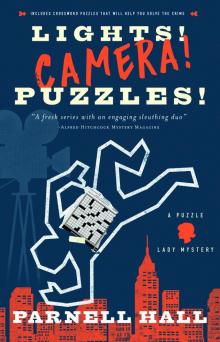 Lights! Camera! Puzzles!
Lights! Camera! Puzzles!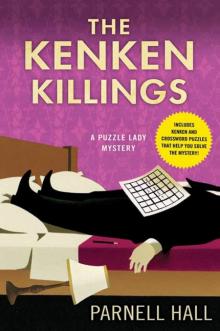 The KenKen Killings
The KenKen Killings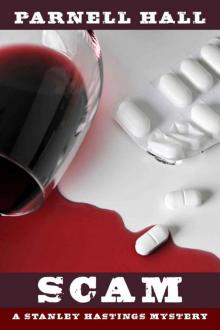 12-Scam
12-Scam The Puzzle Lady vs. the Sudoku Lady
The Puzzle Lady vs. the Sudoku Lady 2 Murder
2 Murder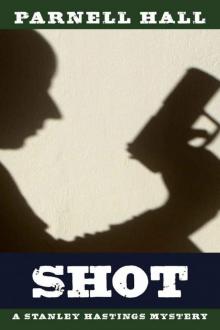 7 Shot
7 Shot You Have the Right to Remain Puzzled
You Have the Right to Remain Puzzled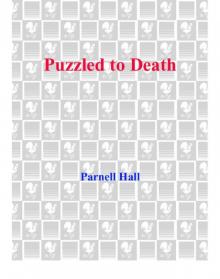 Puzzled to Death
Puzzled to Death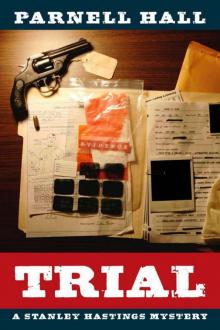 11-Trial
11-Trial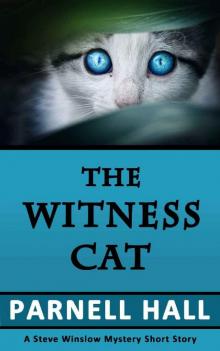 The Witness Cat (Steve Winslow Mystery)
The Witness Cat (Steve Winslow Mystery) With This Puzzle, I Thee Kill
With This Puzzle, I Thee Kill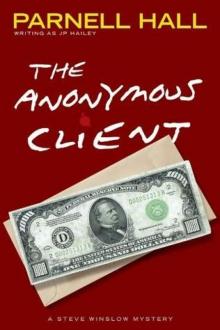 The Anonymous Client sw-2
The Anonymous Client sw-2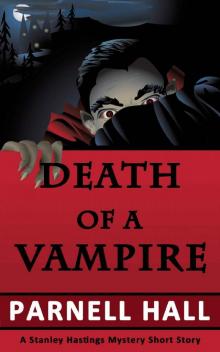 Death of a Vampire (Stanley Hastings Mystery, A Short Story)
Death of a Vampire (Stanley Hastings Mystery, A Short Story) The Wrong Gun sw-5
The Wrong Gun sw-5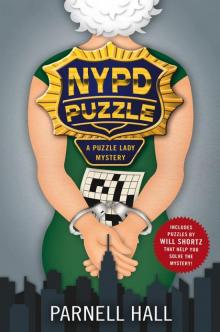 NYPD Puzzle
NYPD Puzzle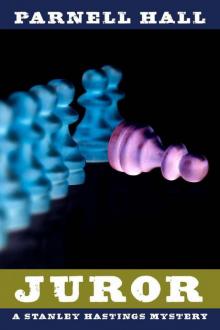 6 Juror
6 Juror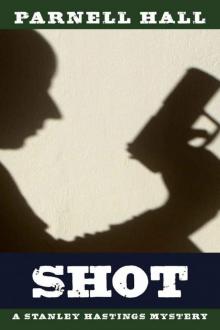 07-Shot
07-Shot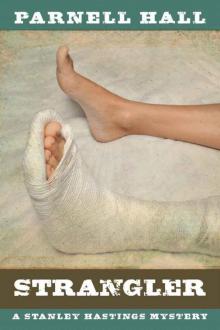 04-Strangler
04-Strangler 02-Murder
02-Murder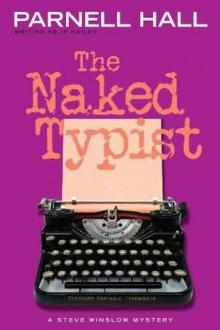 SW04 - The Naked Typist
SW04 - The Naked Typist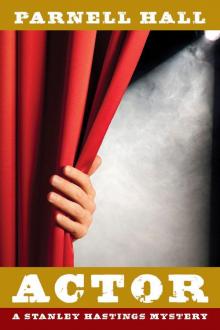 Actor
Actor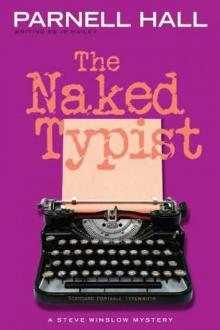 The Naked Typist sw-4
The Naked Typist sw-4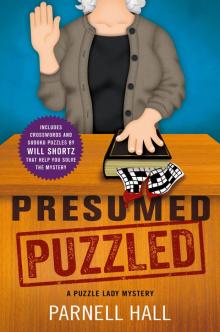 Presumed Puzzled
Presumed Puzzled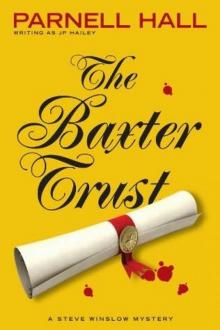 SW01 - The Baxter Trust
SW01 - The Baxter Trust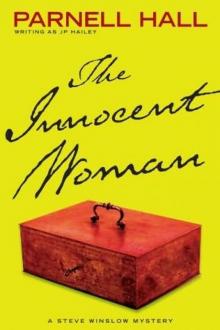 SW06 - The Innocent Woman
SW06 - The Innocent Woman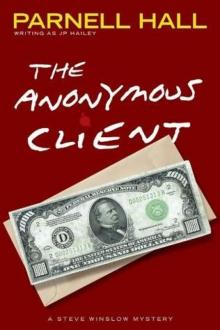 SW02 - The Anonymous Client
SW02 - The Anonymous Client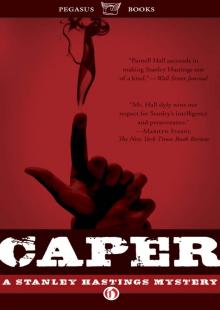 Caper
Caper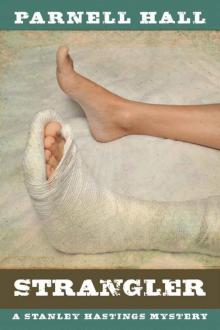 4 Strangler
4 Strangler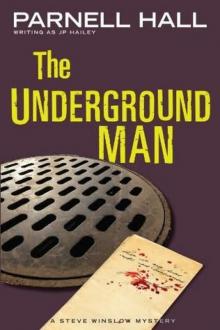 The Underground Man sw-3
The Underground Man sw-3 Manslaughter (Stanley Hastings Mystery, #15)
Manslaughter (Stanley Hastings Mystery, #15) A Puzzle to Be Named Later--A Puzzle Lady Mystery
A Puzzle to Be Named Later--A Puzzle Lady Mystery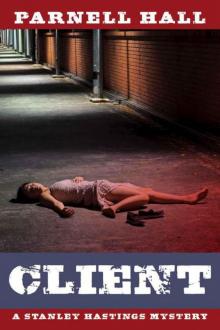 05-Client
05-Client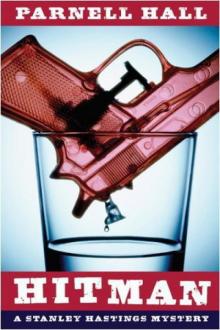 16 Hitman
16 Hitman SW05 - The Wrong Gun
SW05 - The Wrong Gun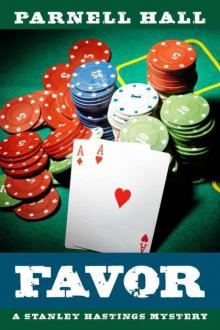 3 Favor
3 Favor Last Puzzle & Testament
Last Puzzle & Testament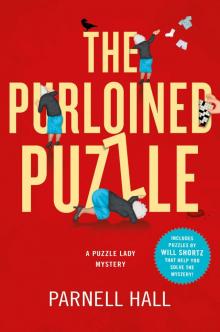 The Purloined Puzzle
The Purloined Puzzle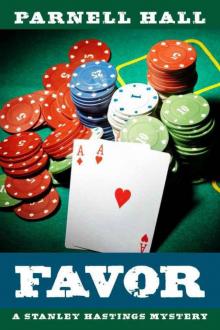 03-Favor
03-Favor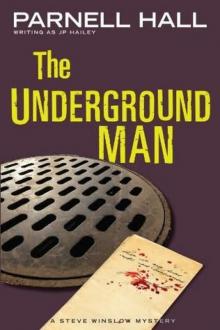 SW03 -The Underground Man
SW03 -The Underground Man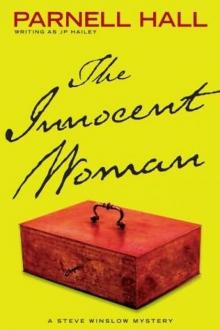 The Innocent Woman sw-6
The Innocent Woman sw-6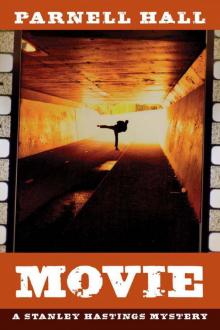 10 Movie
10 Movie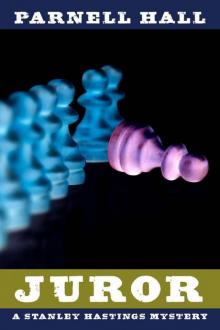 06-Juror
06-Juror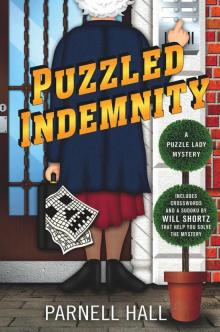 Puzzled Indemnity
Puzzled Indemnity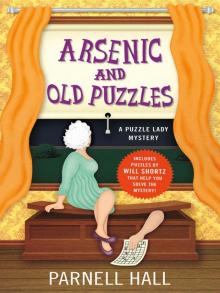 Arsenic and Old Puzzles
Arsenic and Old Puzzles Dead Man's Puzzle
Dead Man's Puzzle Safari
Safari $10,000 in Small, Unmarked Puzzles
$10,000 in Small, Unmarked Puzzles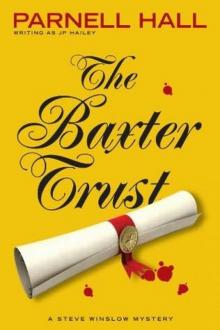 The Baxter Trust sw-1
The Baxter Trust sw-1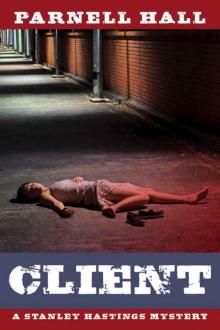 5 Client
5 Client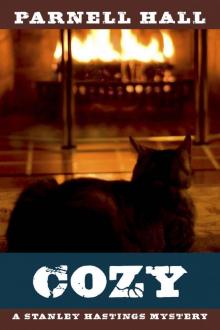 Cozy (Stanley Hastings Mystery, #14)
Cozy (Stanley Hastings Mystery, #14)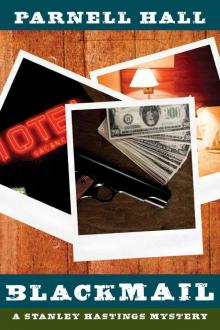 Blackmail
Blackmail A Puzzle in a Pear Tree
A Puzzle in a Pear Tree A Clue for the Puzzle Lady
A Clue for the Puzzle Lady Clicker Training (Stanley Hastings Mystery, A Short Story)
Clicker Training (Stanley Hastings Mystery, A Short Story)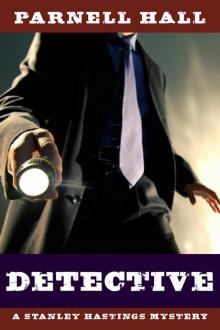 Detective (Stanley Hastings Mystery Book 1)
Detective (Stanley Hastings Mystery Book 1)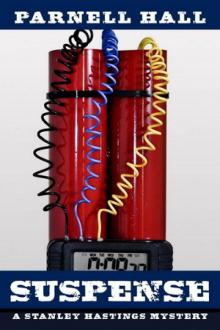 13 Suspense
13 Suspense